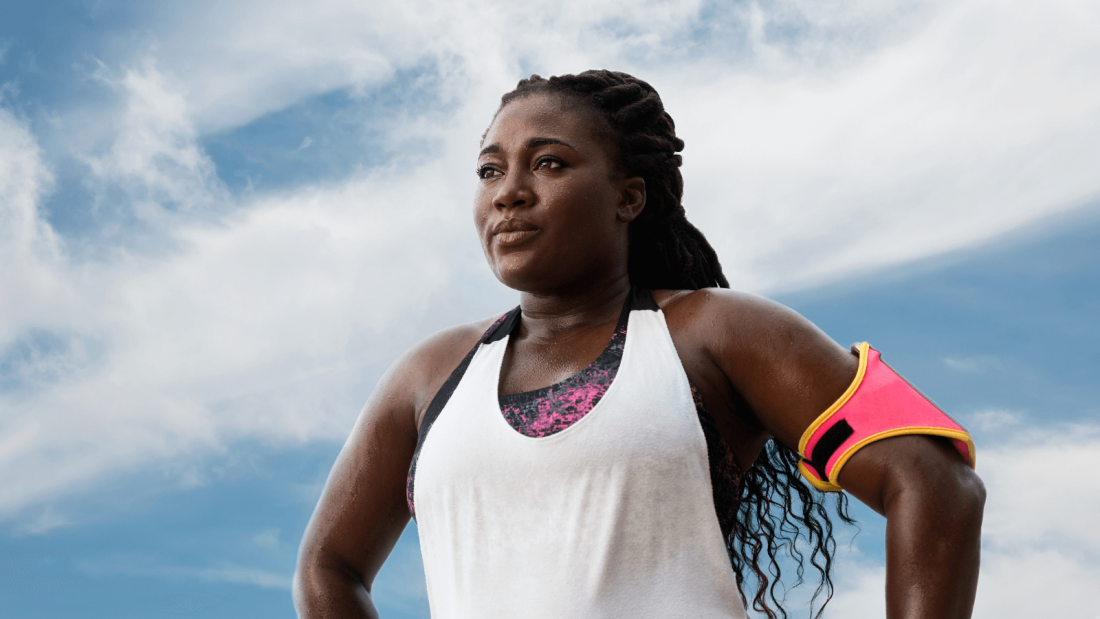‘When can I exercise again after my positive COVID symptoms?’ This guide tells you everything you need to know before exercising again after having COVID-19.

With a reported 3.65 million cases of COVID-19 in the UK so far (at time of writing), chances are, you or someone very close to you, has come into contact with the virus. If you are lucky, your symptoms may not have been too severe, but a growing number of people are displaying Long COVID symptoms, which makes it more difficult to get back to normal life and do the things we normally do, like exercise.
The severity of Long COVID symptoms vary from person to person, but commonly include diminished lung function, heart problems, muscle and joint disorders and chronic fatigue. It can also exacerbate underlying health issues, including heart disease, diabetes, musculoskeletal and mental health conditions.
Watch this NHS film highlighting the impact of Long COVID
For fitness enthusiasts, all of these symptoms will impact on how quickly they can return to exercising. We caught up with Adam Hewitt of Ten Health & Fitness, a boutique fitness provider that bridges the gap between the fitness and medical sector, and who offer a special Covid Recovery Programme to give us the lowdown on what everyone needs to know before exercising again after having COVID-19.
Seek support from a qualified, supervised healthcare practitioner
The first piece of advice is, where possible, seek support from a qualified, supervised healthcare practitioner. Working with an expert will put you in the best possible place to recover from COVID. While we are still learning about the exact effects on the body, Coronavirus has similar effects on the cardiovascular system and lungs to those seen with other, better known, conditions. Symptoms of these conditions can be addressed and often improved through clinical exercise prescription, as can the same symptoms presenting as part of Long COVID. A qualified practitioner can set you a personalised plan designed to address your specific symptoms, monitor your vital signs and track your progress to ensure your optimal recovery.
Don’t expect to go back to where you were pre-COVID. Reset your expectations
COVID can wreak havoc with your lungs and cardiovascular system. Not only that, if you have spent time in hospital, or been bed-ridden, then you will have spent extended periods of time in positions that are not normal for the body and which can cause significant muscular or joint problems. You may have been healthy and active before, not thinking twice about walking to the shops or jogging for a bus. The chances are, what you took for granted before is going to be a challenge now, so reset your expectations and focus on daily little wins.
Accept that recovery will not be a linear progression from illness back to wellness.
Don’t expect linear progress
We all have good days and bad days; whatever it is we do. The same is true for recovery. You will have days where you feel good, where exercise is easier, maybe the stairs you climb at home don’t seem too much of a problem. Then the next day you may just walk to the kitchen and it tires you out. Fatigue which you previously recovered from in one day, and therefore wouldn’t notice, can extend into multiple days when you are suffering from an illness. Accept that recovery will not be a linear progression from illness back to wellness. So long as the overall trend is improvement then don’t worry about the timescale – recovery will take as long as it takes.
Focus on wellness, breathing and aerobic capacity
It might sound obvious, but try and get some fresh air and vitamin D. Even a little walk at lunchtime can make a world of difference, especially right now as it gets dark so early. Focusing on breathing deeply, filling the lungs with oxygen, and getting the heart pumping, will help a lot. The heart and lungs are the organs hit hardest by Coronavirus, so improving their function is the biggest opportunity to reduce the level of fatigue you’re experiencing. The more oxygen you can get into your lungs, and have that travelling around your body, the better.
Take the pressure off yourself and listen to your body
Think of the recovery process as a marathon not a sprint. It’s really important to take pressure off yourself and give yourself a break. Not being able to do the things you want to can be incredibly frustrating, but recovery can be a long process. Your fitness and mobility will come back, but it’s important to give the process time. Some simple stretching and mobility work can improve blood flow, help improve posture and reduce tension. Listen to your body too, if it needs some rest, give it rest, and don’t be hard on yourself for doing so.












